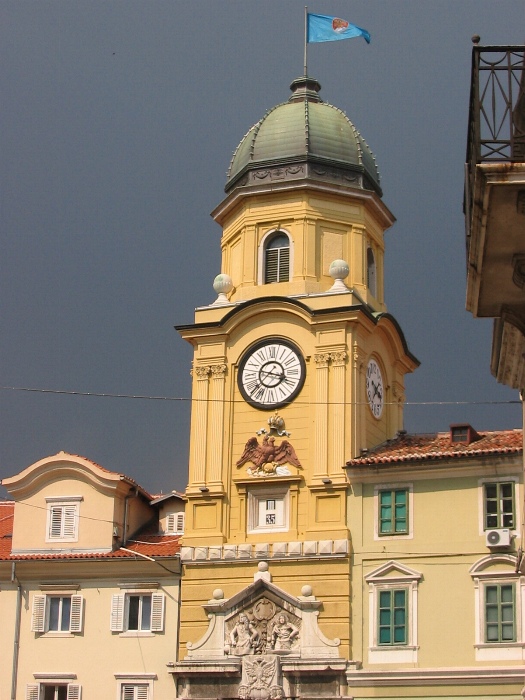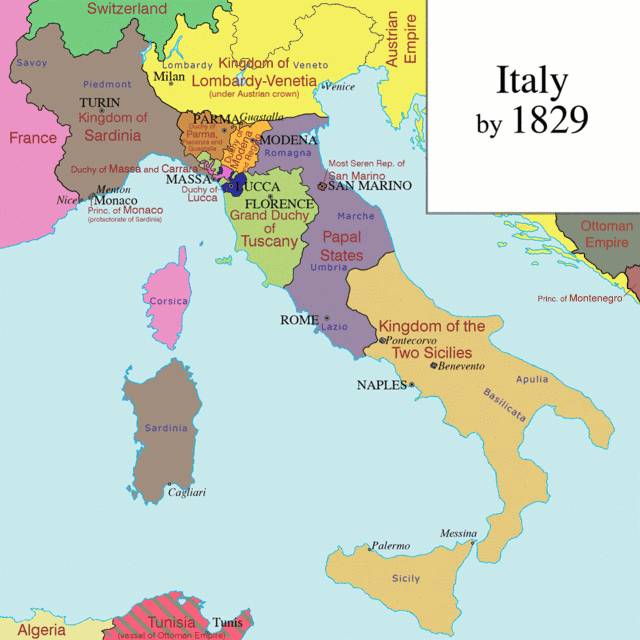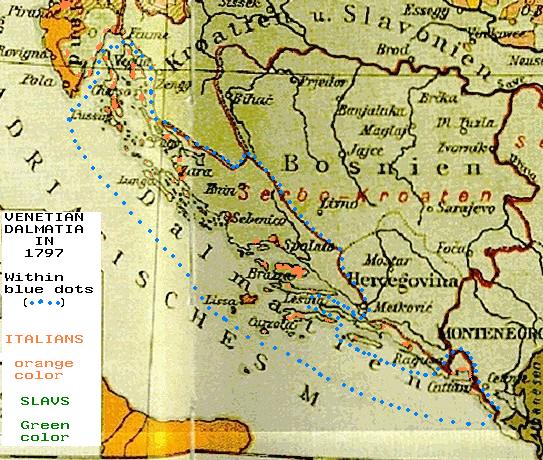|
Bloody Christmas (1920)
The Bloody Christmas of 1920 ( hr, Riječki krvavi božić; it, Natale di sangue) was a series of clashes in Fiume (now Rijeka), which led to the conclusion of the Fiume campaign carried out by Italian poet and adventurer, Gabriele D'Annunzio in 1920. Background Upon the return of the liberal politician Giovanni Giolitti to government in June 1920, during the Biennio Rosso, the official attitude towards the Kingdom of Italy's regency of Carnaro constituted in Fiume began to waver. On November 12 of the same year, Italy and Yugoslavia signed the Treaty of Rapallo, forming the Free State of Fiume as a consequence to an occupation of Fiume by Gabriele d'Annunzio and his troops which began with the Impresa di Fiume. D'Annunzio entered Fiume as part of his and many Italians protest for an incomplete victory after World War I, because Italy was denied some of the Eastern Adriatic lands it claimed and was promised at its entry to the war. Occupation The resumption of Italy's premiers ... [...More Info...] [...Related Items...] OR: [Wikipedia] [Google] [Baidu] |
Rijeka
Rijeka ( , , ; also known as Fiume hu, Fiume, it, Fiume ; local Chakavian: ''Reka''; german: Sankt Veit am Flaum; sl, Reka) is the principal seaport and the third-largest city in Croatia (after Zagreb and Split). It is located in Primorje-Gorski Kotar County on Kvarner Bay, an inlet of the Adriatic Sea and in 2021 had a population of 108,622 inhabitants. Historically, because of its strategic position and its excellent deep-water port, the city was fiercely contested, especially between the Holy Roman Empire, Italy and Croatia, changing rulers and demographics many times over centuries. According to the 2011 census data, the majority of its citizens are Croats, along with small numbers of Serbs, Bosniaks and Italians. Rijeka is the main city and county seat of the Primorje-Gorski Kotar County. The city's economy largely depends on shipbuilding (shipyards "3. Maj" and "Viktor Lenac Shipyard") and maritime transport. Rijeka hosts the Croatian National Theatre Ivan pl. ... [...More Info...] [...Related Items...] OR: [Wikipedia] [Google] [Baidu] |
Italian Battleship Andrea Doria
''Andrea Doria'' was the lead ship of her class of battleships built by the ''Regia Marina'' (Royal Navy). The class included only one sister ship, . ''Andrea Doria'' was named after the 16th-century Genoese admiral of the same name. Laid down in March 1912, the battleship was launched a year later in March 1913, and completed in March 1916. She was armed with a main battery of thirteen guns and had a top speed of . ''Andrea Doria'' saw no major action in World War I, and served extensively in Mediterranean in the 1920s and 1930s. She was involved in the suppression of rebels in Fiume and the Corfu incident in the 1920s. Starting in 1937, ''Andrea Doria'' underwent an extensive modernization, which lasted until 1940. She saw relatively little action during World War II; she was tasked with escorting convoys to Libya throughout 1941 and into 1942, during which she engaged in the inconclusive First Battle of Sirte. After the Armistice in September 1943 the ship was sailed to ... [...More Info...] [...Related Items...] OR: [Wikipedia] [Google] [Baidu] |
1920 In Europe
Nineteen or 19 may refer to: * 19 (number), the natural number following 18 and preceding 20 * one of the years 19 BC, AD 19, 1919, 2019 Films * ''19'' (film), a 2001 Japanese film * ''Nineteen'' (film), a 1987 science fiction film Music * 19 (band), a Japanese pop music duo Albums * ''19'' (Adele album), 2008 * ''19'', a 2003 album by Alsou * ''19'', a 2006 album by Evan Yo * ''19'', a 2018 album by MHD * ''19'', one half of the double album ''63/19'' by Kool A.D. * ''Number Nineteen'', a 1971 album by American jazz pianist Mal Waldron * ''XIX'' (EP), a 2019 EP by 1the9 Songs * "19" (song), a 1985 song by British musician Paul Hardcastle. * "Nineteen", a song by Bad4Good from the 1992 album '' Refugee'' * "Nineteen", a song by Karma to Burn from the 2001 album ''Almost Heathen''. * "Nineteen" (song), a 2007 song by American singer Billy Ray Cyrus. * "Nineteen", a song by Tegan and Sara from the 2007 album '' The Con''. * "XIX" (song), a 2014 song by Slipknot. ... [...More Info...] [...Related Items...] OR: [Wikipedia] [Google] [Baidu] |
Wars Involving Italy
War is an intense armed conflict between states, governments, societies, or paramilitary groups such as mercenaries, insurgents, and militias. It is generally characterized by extreme violence, destruction, and mortality, using regular or irregular military forces. Warfare refers to the common activities and characteristics of types of war, or of wars in general. Total war is warfare that is not restricted to purely legitimate military targets, and can result in massive civilian or other non-combatant suffering and casualties. While some war studies scholars consider war a universal and ancestral aspect of human nature, others argue it is a result of specific socio-cultural, economic or ecological circumstances. Etymology The English word ''war'' derives from the 11th-century Old English words ''wyrre'' and ''werre'', from Old French ''werre'' (also ''guerre'' as in modern French), in turn from the Frankish *''werra'', ultimately deriving from the Proto-Germanic *''we ... [...More Info...] [...Related Items...] OR: [Wikipedia] [Google] [Baidu] |
History Of Rijeka
Rijeka, formerly known as Fiume, is a city located in the northern tip of the Kvarner Gulf in the northern Adriatic. It is currently the third-largest city in Croatia. It was part of the Roman province of Dalmatia, and later of the Kingdom of Croatia. It grew during the 12th to 14th centuries as a seaport within the Holy Roman Empire, trading with Italian cities. Under the rule of the House of Habsburg from 1466, it was made a free city; and, although part of the Duchy of Carniola, it developed local self-government. During the 16th and 17th centuries, Rijeka came under attack from both Turkish and Venetian forces, and became a base for irregular Habsburg troops known as Uskoks. Its maritime trade was suppressed by Venice until the late 17th century, when peace was concluded, and the Habsburgs set about developing the city as a major port, with sugar refineries and other industries being introduced. Rijeka was attached to the Kingdom of Hungary in 1779, retaining its auton ... [...More Info...] [...Related Items...] OR: [Wikipedia] [Google] [Baidu] |
Italian Irredentism
Italian irredentism ( it, irredentismo italiano) was a nationalist movement during the late nineteenth and early twentieth centuries in Italy with irredentist goals which promoted the unification of geographic areas in which indigenous peoples considered to be ethnic Italians and/or Italian-speaking individuals formed a majority, or substantial minority, of the population. At the beginning, the movement promoted the annexation to Italy of territories inhabited by Italian indigenous population, but retained by the Austrian Empire after the Third Italian War of Independence in 1866. These included Trentino, but also multilingual and multiethnic areas within the northern Italian region encompassed by the Alps, with German, Italian, Slovene, Croatian, Ladin and Istro-Romanian population, such as South Tyrol, Trieste, a part of Istria, Gorizia and Gradisca and part of Dalmatia. The claims were extended also to the city of Fiume, Corsica, the island of Malta, the County of Nice and ... [...More Info...] [...Related Items...] OR: [Wikipedia] [Google] [Baidu] |
Kingdom Of Italy (1861–1946)
The Kingdom of Italy ( it, Regno d'Italia) was a state that existed from 1861, when Victor Emmanuel II of Kingdom of Sardinia, Sardinia was proclamation of the Kingdom of Italy, proclaimed King of Italy, until 1946, when civil discontent led to an 1946 Italian institutional referendum, institutional referendum to abandon the monarchy and form the modern Italy, Italian Republic. The state resulted from a decades-long process, the ''Italian unification, Risorgimento'', of consolidating the different states of the Italian Peninsula into a single state. That process was influenced by the House of Savoy, Savoy-led Kingdom of Sardinia, which can be considered Italy's legal Succession of states, predecessor state. Italy Third Italian War of Independence, declared war on Austrian Empire, Austria in alliance with Kingdom of Prussia, Prussia in 1866 and received the region of Veneto following their victory. Italian troops Capture of Rome, entered Rome in 1870, ending Papal States, more tha ... [...More Info...] [...Related Items...] OR: [Wikipedia] [Google] [Baidu] |
Corpus Separatum (Fiume)
''Corpus separatum'', a Latin term meaning " separated body", refers to the status of the City of Fiume (modern Rijeka, Croatia) while given a special legal and political status different from its environment under the rule of the Kingdom of Hungary. Formally known as City of Fiume and its District ( hu, Fiume város és kerülete), it was instituted by Empress Maria Theresa in 1779, determining the semi-autonomous status of Fiume within the Habsburg monarchy until the fall of the Austro-Hungarian Empire in 1918. Origins Maria Theresa, with her sovereign decision of 2 October 1776, gave up possession of Fiume, which for a long time was administrated with the adjacent hereditary Inner Austrian fiefs of the Habsburgs within the Holy Roman Empire, and gave it to the Kingdom of Hungary, of which she was also queen, with a view of fostering trade. Since Hungary proper was some away, the city was initially annexed to the Habsburg Kingdom of Croatia, whose territory began east of the ... [...More Info...] [...Related Items...] OR: [Wikipedia] [Google] [Baidu] |
Mutilated Victory
Mutilated victory (Italian: ''vittoria mutilata'') is a term coined by Gabriele D’Annunzio at the end of World War I, used to describe the dissatisfaction of Italian nationalists concerning territorial rewards in favor of the Kingdom of Italy after the conflict. As a condition for entering the war against Austria–Hungary and Germany, Italy was promised in the Treaty of London signed in 1915 with the powers of the Triple Entente, recognition of control over Italian Tyrol, the Austrian Littoral, northern Dalmatia- territories with sizeable ethnic Italian population which had not become part of the Kingdom upon Italian unification in the late 19th century. Additionally, Italy was assured ownership of the Dodecanese, protection over Albania, and a sphere of influence around the Turkish city of Antalya, alongside a possible enlargement of her colonial presence in Africa. At the end of the war, despite the initial intention of the United Kingdom and France to remain faithful to t ... [...More Info...] [...Related Items...] OR: [Wikipedia] [Google] [Baidu] |
Sušak, Rijeka
Sušak (in Italian ''Sussak'') is a part of the city of Rijeka in Croatia, where it composes the eastern part of the city, separated from the city center by the Rječina river, which in former times served as an international border. Notable features of Sušak include the public beaches at Pećina and Glavanovo, along with the Tower Center shopping mall. History Under the Habsburg monarchy, Rijeka and the surrounding area technically belonged to the Hungarian half of the Monarchy. Sušak was a municipality separate from the city of Rijeka and since the nineteenth century it experienced faster urbanisation and population growth. In 1924, Rijeka belonged to the independent Free State of Fiume, which had been created four years earlier under the Treaty of Rapallo, but in the Treaty of Rome the Kingdom of Serbs, Croats, and Slovenes and Italy agreed to dissolve the free state. Instead Fiume was annexed to Italy as the Province of Fiume, and Sušak remained with the Kingdom of Serb ... [...More Info...] [...Related Items...] OR: [Wikipedia] [Google] [Baidu] |
Treaty Of Rome (1924)
The Treaty of Rome was agreed on 27 January 1924, when Italy and the Kingdom of Serbs, Croats and Slovenes agreed that Fiume would be annexed to Italy as the Province of Fiume, and the town of Sušak would be part of the Kingdom of Serbs, Croats and Slovenes. Fiume and Sušak would have a joint administration of the port facilities. Both towns are now in the city of Rijeka, Croatia. Background After Fiume was under Gabriele D'Annunzio's Italian Regency of Carnaro, the Treaty of Rapallo (1920) created the independent Free State of Fiume, which was immediately recognised by other states, including the United States, France and the United Kingdom. The state survived only one year ''de facto'' and four years ''de jure''. The joint administration of the port was never created. On 24 April 1921, the first general elections for its parliament occurred, and it elected President Riccardo Zanella, the leader of the Autonomist Fiuman Movement. On 3 March 1922, a movement directed by th ... [...More Info...] [...Related Items...] OR: [Wikipedia] [Google] [Baidu] |
Riccardo Zanella
Riccardo Zanella (27 June 1875 – 30 March 1959) was the only elected president of the short lived Free State of Fiume. Biography Zanella was born to an Italian father and Slovene mother in Fiume, Austria-Hungary (present-day Croatia). He attended Hungarian Commercial School in Fiume and Budapest. Soon he was professor of bookkeeping in the same school in Fiume, but year later he resigned. During the clash between Liberalism and radicalism in Hungary, Zanella emerged as the local leader of the Kossuthist faction in Fiume. He became the leader of the Autonomist Association, known also as Autonomist Party in Fiume, after Michele Maylender resigned in 1901. With Zanella the party abandoned its liberal stance and turned to the Kossuthist independence party for support. Embracing a staunch Italian nationalist stance (in its vehemence typical of the Kossuthists political style) his popularity grew especially among the lower and middle classes, eventually becoming elected mayor (P ... [...More Info...] [...Related Items...] OR: [Wikipedia] [Google] [Baidu] |






